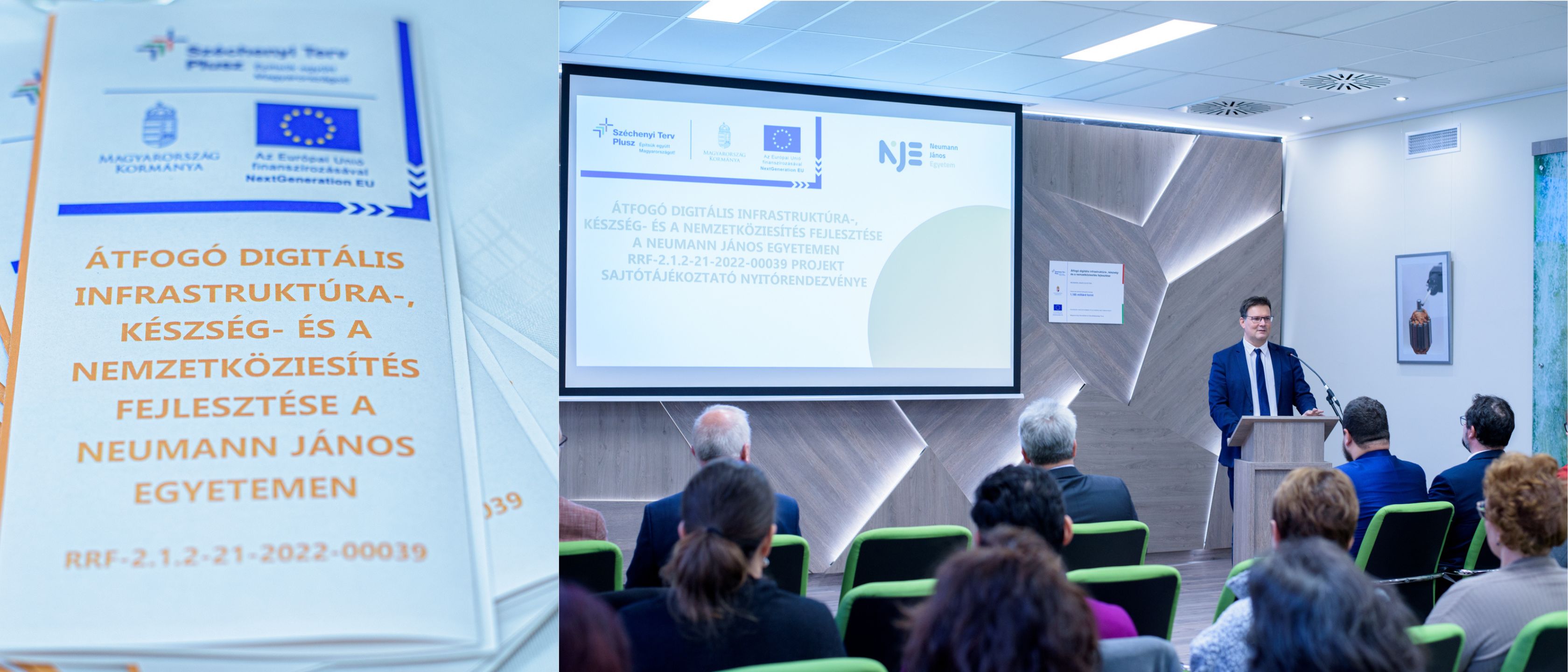
2023-01-30 09:53
On 16th November 2022, the opening event of the project "Development of comprehensive digital infrastructure, skills and internationalisation at John von Neumann University" took place.
The participants were welcomed by Miklós Berczeli PhD, Assistant Professor, responsible for the project.
Afterwards, a speech was given by Tamás Fülöp PhD, Habil, Rector of the John von Neumann University, who called the launch of the project a very important moment, the biggest digitisation project in the history of the University and a milestone that will determine the operation of the institution for decades.
“A complete, or almost complete, digital transformation is taking place, which will affect the entire operation of the University, almost all areas of its activities, in a complex way” he said. The aim is to create digital spaces in which students not only acquire the skills required by the digital environment but also feel at home and at ease in their daily lives. Another important goal is internationalisation, with the institution aiming to become more prominent in the international education market by developing English-language courses.
Following this, the President of the National Research, Development and Innovation Office, Zoltán Birkner PhD, gave a speech in which he referred to the progress made by Hungarian universities in recent years in terms of efficiency and competitiveness.
He stressed the need for universities to work together for the benefit of the community, adapting their operational processes to market and economic considerations, rather than to individual career considerations, in order to strengthen their self-financing capacity.
He cited the creation of research and scientific communities as an important achievement, where experts in a field can work together to become a significant factor in the international scientific community.
This was followed by a speech by József Gaál, Deputy Mayor of the City of Kecskemét, in which he summarised the importance of the project for the economic and business development of the region. He stressed that, in addition to the tasks of research and development, innovation and marketing are essential tools to ensure that an idea or prototype resulting from a project can be a competitive product in demand on the market.
Finally, Miklós Berczeli PhD presented the specific technical content and long-term objectives of the project under the RRF-2.1.2-21-2022-00039 call. These objectives include, in particular, the development and renewal of educational services, staffing and infrastructure in order to bring graduates with increasingly higher digital skills into the labour market, where digitalisation is of growing importance.
The University has recognised that it has a key role to play both in the development of the information society and in the digital transformation process. Information technology and the digitisation of processes in all areas of industry are of crucial importance. The introduction of electric vehicle systems, Industry 4.0, increasing communication between machines, artificial intelligence and machine learning are a major challenge for professionals, requiring high competences for the introduction and successful application of up-to-date technologies.
The Institution has developed professional implementation steps for all three faculties, aiming at developing students' digital competences, facilitating the more effective use of state-of-the-art infocommunication tools and learning methodologies.
The development is based on four pillars: increasing digitalisation, developing teaching skills, expanding international links and interlinking education-industry links. The implementation of the thirteen sub-projects that make up the project will together contribute to highlighting the digitalisation capabilities of John von Neumann University in the region, providing students and engineers with the knowledge to shape the future using state-of-the-art tools, both at national and international level. The University is committed to these goals and has made concrete commitments: 300 academic staff members, 3000 students will be involved in the renewal and digital transformation process, and more than 1300 new digital tools will be installed.
